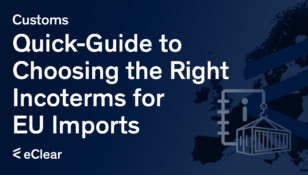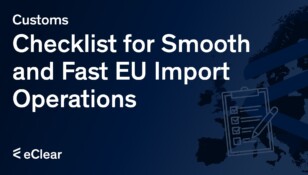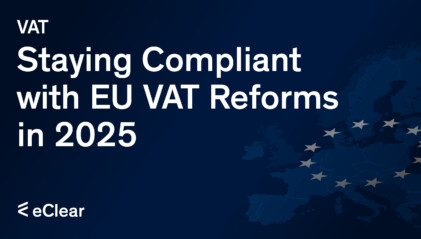Statistics
In a digital Europe where numbers often speak louder than words, the latest Europol report reveals a 5% uptick in identity fraud, spotlighting glaring system vulnerabilities. Financially, KYC compliance is a costly affair, with some firms spending up to €50 million annually, according to a Thomson Reuters study. Meanwhile, a ConsenSys survey shows that 22% of European enterprises already integrate Web3 technologies. These figures sketch Europe at a crossroads—facing rising challenges but also ripe for a Web3-driven transformation in KYC and identity management.
The Current State of KYC and Identity Management in Europe

What’s KYC?
Originating from banking regulations and anti-money laundering laws, KYC has become mandatory for many businesses, especially those involved in cross-border commerce. At its core, KYC verifies a customer’s identity through documents such as passports, utility bills, or tax identification numbers.
Regulatory Landscape
In Europe, the regulatory landscape governing KYC and identity management is both intricate and demanding, shaped by a complex web of laws and directives. At the forefront is the General Data Protection Regulation (GDPR), a sweeping legislation that has redefined how personal data is handled, stored, and processed. Its implications are far-reaching, affecting not just how companies collect data but also how they verify and safeguard it. Then there are the Anti-Money Laundering (AML) directives, which impose stringent customer identification and transaction monitoring requirements. These are supplemented by country-specific regulations, such as Germany’s “Datenschutzgrundverordnung” (DSGVO) or France’s Data Protection Act, which add another layer of complexity to an already convoluted regulatory framework.
Challenges
In the labyrinthine regulatory landscape of European e-commerce, the challenges are manifold and pressing. According to a recent report by Varonis, a staggering 58% of companies in Europe have fallen victim to data breaches, eroding customer trust and incurring substantial GDPR fines. The financial toll of compliance is equally daunting; institutions are shelling out millions on KYC and AML measures, costs often passed down to consumers through fees and less competitive services.
A study by McKinsey further illuminates the inefficiency quagmire, revealing that traditional KYC processes can take an astonishing 30–50 days to complete. This sluggish pace is not just a consumer inconvenience but a business impediment, hampering the swift onboarding of new customers. These collective challenges underscore the urgent imperative for a more streamlined, secure, and cost-effective approach to KYC and identity management in the European e-commerce sector.
Web3 and Decentralised Identity

What is Web3?
As we venture into the next phase of digital evolution, Web3 emerges as a transformative force, fundamentally altering how we interact with the internet. Unlike its predecessor, Web2, which was built on centralised servers and platforms, Web3 operates on a decentralised network, giving users greater control and ownership of their data. This is not merely a technological upgrade; it’s a paradigm shift. Where Web2 facilitated the sharing of information, Web3 empowers users to transact and interact in a more secure, transparent, and equitable digital ecosystem.
Decentralised Identity Redefined
At the heart of this transformation is the concept of Self-Sovereign Identity (SSI), a decentralised approach to identity management. Unlike traditional systems where centralised institutions store and control your identity, SSI allows individuals to own and control their personal data. This is made possible through advanced cryptographic techniques, ensuring that your identity is secure and portable across various platforms and services.
Case Studies
The theoretical promise of Web3 and decentralised identity is already being translated into practical applications. Companies like uPort and Civic have successfully integrated Web3 technologies to offer secure and efficient identity management solutions. For instance, uPort’s platform allows users to create a digital identity on the Ethereum blockchain, which can then be used to access a range of services without the need for repetitive verification.
The Impact of Web3 on KYC Data
Enhanced Security and Privacy
The advent of Web3 technologies offers a robust solution to the perennial security and privacy issues in KYC data management. By leveraging immutable blockchain networks for data storage, Web3 ensures that it cannot be altered or deleted once data is recorded. This immutability is further fortified by cryptographic keys for data access control, adding another layer of security that is virtually impervious to breaches.
Streamlined KYC Processes
The inefficiencies of traditional KYC processes are well-documented, often requiring repetitive verification and a cumbersome onboarding process. Web3 technologies promise to streamline this through smart contracts and decentralised databases, effectively eliminating the need for redundant verification. The benefits are twofold: businesses can reduce operational costs and accelerate customer onboarding. At the same time, users enjoy a more seamless and less intrusive verification process.
Ownership and Control
Perhaps the most revolutionary aspect of Web3’s impact on KYC data is the shift in ownership and control towards the user. Through the concept of Self-Sovereign Identity, individuals have the power to control who has access to their personal information, under what circumstances, and for how long. This empowers users and fosters a new level of trust and transparency in the process, as businesses must request permission for data access rather than unilaterally harvesting it.
Future Implications and Trends

Web3’s disruptive potential is increasingly palpable, especially considering the 1.7 billion unbanked adults who could benefit from Self-Sovereign Identity (SSI). Web3 is also set to recalibrate the power dynamics in favour of consumers, promising both ethical and business gains.
Additionally, the advent of cross-platform identity systems heralds a future of seamless user experiences and collaborative innovation. In summary, Web3 technologies offer transformative prospects—disrupting traditional methods, empowering consumers, and enabling unprecedented interoperability for a more inclusive, secure future.







